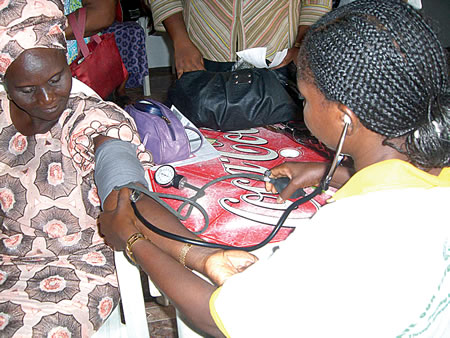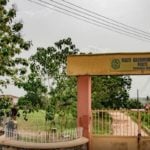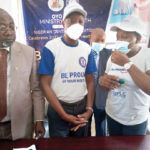DEAN Faculty of Clinical Sciences, University of Ibadan, Professor Mayowa Owolabi says that one out of every two or three adults above the age of 25 years are hypertensive in Africa and calls on clinicians to invest more time and resources on population health in a bid to tackle the problem.
Owolabi gave the call in a lecture entitled “The Place of Big Data in Clinical Research”, the first quarterly and virtual lecture of the Medical and Dental Consultants Association of Nigeria (MDCAN), University College Hospital, Ibadan branch for the year 2022.
Professor Owolabi stated that tackling hypertension using digital tools is the best approach considering that now one out of every two adults, that’s more than 50% of adults are hypertensive in Africa based on the new global definition of hypertension.
According to him, digital tools can be useful not only for surveillance but also for health promotion and prevention and for acute care as well as for rehabilitation of individuals with hypertension and its complications, including stroke.
He stated that the digital age ushered in by the industrial revolution is changing the way a lot of things are done and generating very big data that are extremely useful for predictive modeling, advanced analytics and genomics and precision medicine.
Professor Owolabi said that digital tools are really coming to everybody’s aid and of course community outreaches with point-of-care devices accelerometer, smartwatches, and the use of social media for sensitisation about lifestyle changes required for prevention as well as early recognition, diagnosis and treatment of diseases.
He declared: “Imagine how much that data is and what you could do with that kind of data. All of these data can be collected and integrated with genomic and clinical and laboratory data to predict health outcomes. It will give us an opportunity to be better doctors, helping to save lives in better ways, prolong life and promote quality of life in better ways using technology tools and using new information.
“We will be able to come up with precision medicine outcomes like new biomarkers, prediction tools and prognostication tools, treatments for a clinical trial, rational polypharmacy and we can tailor environmental exposures and develop new molecules.
IN CASE YOU MISSED THESE FROM NIGERIAN TRIBUNE
- ‘Officials initially offered to help but when the number of able-bodied citizens at the centre increased, they left us unattended to’
- Why Ogun Tops List Of ‘Yahoo Boys’ In Nigeria ― Governor Abiodun
- Police, Amotekun after criminals on Lagos-Ibadan expressway
- Suspected cannibal pays N500,000 for boy’s human organs, says ‘that’s my favourite meal, especially the throat’
- Court awards Nnamdi Kanu N1 billion over invasion of his home by military, asks FG to apologise
“These helps us to determine individual’s susceptibility, to screen and determine preclinical progression before it reaches the clinical horizon and eventually, when a particular disease reaches a clinical horizon we are able to diagnose faster, better, more accurately and of course offer clinical treatment.”
Professor Owolabi, however, said the methodology and uses of collected data, particularly medical data must be ensured to pass through the political, legal, ethical, anthropological, social demographic and economic frameworks to prevent violating the Hippocratic oath.
Former Chief Medical Director, UCH, Ibadan, Professor Temitope Alonge, in his opening speech, stated that big data analytics is taking a big chunk of research, particularly in providing revelation on patterns, trends and association of diseases in the medical field and therefore has made collaborator research mandatory globally.






